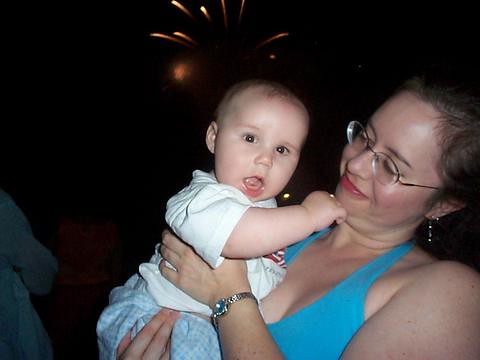First!
So I had a very interesting conversation with a client yesterday. After editing a chapter of a thesis, the grad student who'd written it called and said she had a few questions. Well, she did not have a few questions -- she had a million questions! In a nutshell, she wanted to ask me the reason behind every change I'd made to her 35-page document. I'm talking every punctuation change, every word choice -- everything. Nothing was too small for her.
Now, in fairness, she's an extremely nice person. She reminds me a little of my college roommate, partly because she has a very mathematical mind (and math was one of her two majors) and partly because she speaks very quickly and exactly. I like people like this; they're fun. I also feel a bit dull around them sometimes, but I like to think I bring a little lightness and looseness to the party. Anyway, after about 45 minutes on the phone with this lovely woman, we'd managed to cover the first four pages of her paper and I could tell this method of working wasn't going to serve us well. When we ended our conversation (on my initiative), I told her with all due respect that we really need to focus on the big picture; we need to work together to make sure she gets her chapters completed by her Saturday deadline, and we can always discuss the finer points of grammar and style later. Of course, I was extremely gentle and polite about it; she's very sweet and I didn't want to hurt her feelings, but I also didn't want to spend too much time giving grammar lessons. She understood, thank goodness.
I realized after our conversation that she's the first person to question my editing choices in such detail. I feel very comfortable explaining or defending my choices because I've been doing this work for a long time, but it's been a long time since I'd actually been asked to explain why I changed a colon to a semicolon in one place, and changed a semicolon to a colon in another.
This reminded me of a recent experience at a new doctor's office. I went in as a new patient and the clerk gave me the usual history forms to fill out. After filling out all my health information, I reached the final two pages in the stack. These were two forms stating that I'd received the privacy statement and health care directive, respectively, and each required my signature. However, I had, in fact, NOT received those documents, and I told the clerk I couldn't sign the receipts until I received the documents. She sighed and gave me the office copy of the privacy statement to read, and told me it was "basically the same" as the health care directive.
Um...no.
After I read the privacy statement, I asked for a copy. Oh, and I should mention that the clerk was sitting right next to a copy machine and wouldn't have had to get out of her chair to make copies. Once again, she sighed and fulfilled my request. "You're the first person to ask for this," she told me.
I signed the receipt for the privacy statement and tucked my copy of the document into my purse. "You need to sign the other one, too," the clerk said. I explained that I couldn't sign it until I received a copy of the document. "But we need to keep the receipts in our files in case we get audited," she said. I asked if she had an office copy of the health care directive, and she said no. I politely explained that I wouldn't be signing the receipt, then. "You're the first one to ask about this," she repeated. "Everyone else just signs the forms." She sounded reproachful.
Too bad.
Maybe I'll be giving grammar lessons next week. ;^)


<< Home